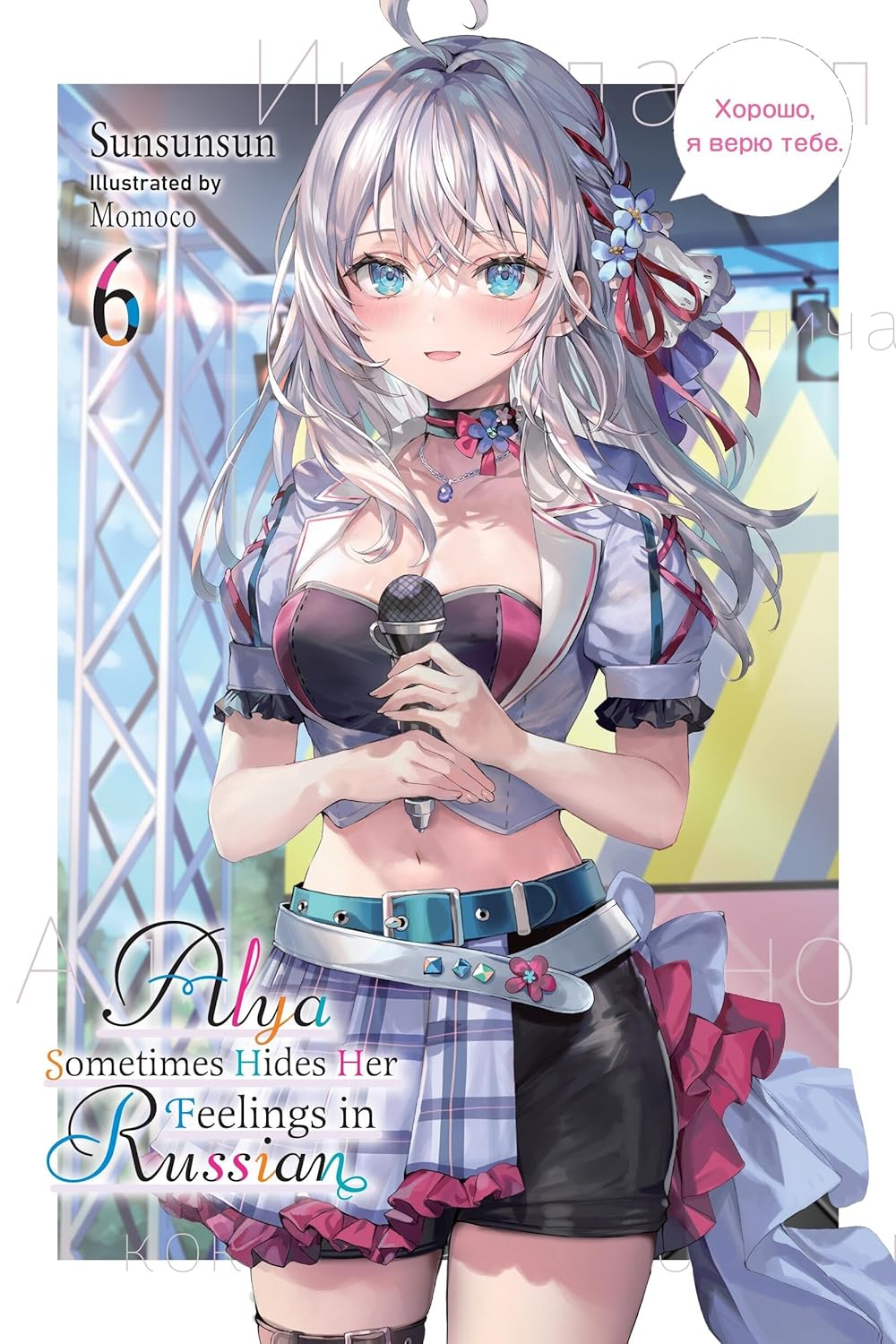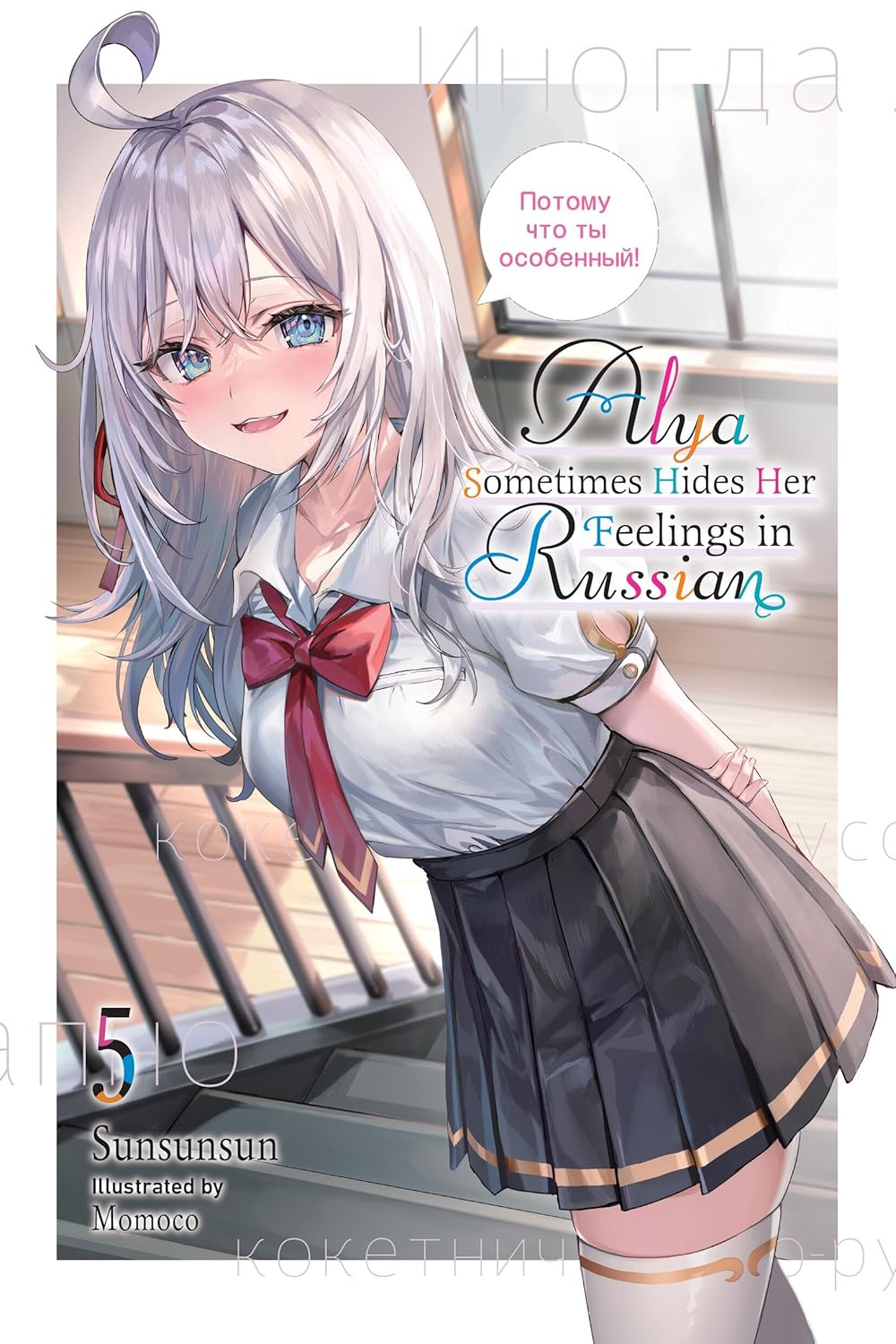By Sunsunsun and Momoco. Released in Japan as “Tokidoki Bosotto Russia-go de Dereru Tonari no Alya-san” by Kadokawa Sneaker Bunko. Released in North America by Yen On. Translated by Matthew Rutsohn.
I feel badly for Alya at times. This is, theoretically, her series. She’s the character on the cover art, she’s obviously going to be the winning girl, and she’s cute. But the overall plot of her arc is “I need to open up to others and not just rely on myself, and also I need to admit I’m in love with Masachika.” As arcs go, it’s simple. It’s not something that can carry a series. That’s Masachika and Yuki’s arc. Yuki’s not going to be the winning girl, for obvious reasons, but the screwed-up family she and Masachika are both in is what we’re going to be seeing more and more of. We get a bit of it here, and see that everyone is still carrying Expections, with a capital E, and that failing to meet them is worse than actually murdering someone. This has a lot of fluff in it, but the back half sets up darker things going forward.
The first half of this is pure fluff and fanservice, as we continue to have the school festival arc. We now see Alya dressed up as an elf, which frankly is perfect for her, and the sight blows everyone’s mind. Meanwhile, Masha is running a magician’s bar, and has some brilliant tricks… that she can’t perform in front of her sister because she’s always forced to be the goofy one in her presence. We get Ayano’s incredibly intimidating MAID SKILLS, which threaten to overwhelm Masachika when she maids a bit too hard at him. And, of course, the band get ready to perform. Unfortunately, it turns out that some mysterious person forged invitations to the festival, and there are now various pranksters, thugs, and bad guys there, who have been ordered to destroy it. Can the student council find out who’s responsible and save the day?
It’s really brought home here how this is a school for elites. Yuki, in an amusing takedown of one of the ringleaders, points out that his romantic angst would make a very poor subplot in a villainess book, and that’s kind of what we have here – not the villainess herself (though Yuki’s trying her best), but the “nobles rule the world” worldview. The elite families of many of the students are at the event – including Masachika and Yuki’s family – and they observe the chaos that’s been created with an amused eye, knowing that it will all come down to who controls the narrative and who can win the day. No great prizes for guessing who’s the man behind it all, but I did appreciate the ending, which does not revolve around Alya’s band performance (again, she’s not narratively important), but around Masachika’s, and his tendency once again to a) be miles ahead of everyone around him, and b) hate himself so much I worry he’ll end the series with a suicide attempt. Though I doubt it gets THAT dark.
The next book looks to be the athletics festival, and will no doubt once again be half otaku nerdery and half GRIPPING DRAMA.


